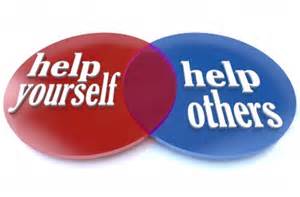This article was originally published as an op-ed in The Jerusalem Post on Wednesday, 20 March 2024: https://www.jpost.com/health-and-wellness/article-792779
The Talmud in the tractate of Ta’anit tells us that when the month of Adar begins, our happiness increases. Until when? The Talmud tells us that this lasts until the end of the following Hebrew month, Nissan. It’s a seasonal phenomenon. As these are two months of holidays, Purim and Passover (Pesach), it elevates the amount of joy we should feel and express.

Here we are in the Hebrew year of 5784 (2024 on the secular calendar). It’s easier to be unhappy than happy. We are fighting a war against a vicious enemy. The war has taken its toll on the economy and our quality of life. The mood of the country and of the Jewish people worldwide is one of concern and depression. Nevertheless, somehow-someway, we are expected to find a way to increase our happiness at this time. Looking at the wider picture of overall health, just how important is being happy?
Positive emotions
Most of 20th century psychiatry and psychology has worked within a medical model with the goal of moving people from painful mental states to more neutral ones. Newer thinkers in the world of psychology reason that positive emotions, and optimal human functioning, can assist people in their quest for joy and fulfillment. Dr. Abraham Maslow is credited with coining the term positive psychology in the 1950s. He introduced the concept of “self-actualization”—a yearning for growth and meaning in life.
In the 1990s, Dr. Martin Seligman broke new ground with the concept of “learned optimism” which is the basis of today’s study of happiness. Only a few years ago, Seligman came out with the concept of PERMA—positive emotion, engagement, relationships, meaning and accomplishment. Research is beginning to bear out the benefits of positive thinking and happiness. Dr. Seligman brings many studies in his book, Flourish.
Happiness and physical health
Happiness and Joy can have a pronounced effect on our physical health. Among the studies Seligman mentions is one from the mid-1980s. 120 men from San Francisco who had their first heart attacks were studied as to the relationship between type A (aggressive, time urgent, and hostile) and type B (easygoing) personalities. Gregory Buchanan, then a graduate student at Penn, studied their first heart attacks. He measured the extent of damage to the heart, blood pressure, cholesterol, body mass, and lifestyle—all the traditional risk factors for cardiovascular disease. In addition, the men were all interviewed about their lives, family, job, and hobbies. Every statement they made in regard to optimism and pessimism was recorded.
Within eight and a half years, half the men had died of a second heart attack. None of the usual risk factors predicted death. This means, not blood pressure, not cholesterol, not even the extent of damage from the first heart attack predicted death. Of the sixteen most pessimistic men, fifteen died. Of the sixteen most optimistic men, only five died. This finding has been repeatedly confirmed in larger studies of cardiovascular disease using varied measures of optimism.
Looking at more evidence
In a European Prospective Investigation, more than 20,000 healthy British adults were followed from 1996-2002. During that time 994 participants died; 365 of them from Cardiovascular Disease (CVD). Death from cardiovascular disease was strongly influenced by a sense of mastery, social class, and other psychological variables. People high in mastery had 20 percent fewer CVD deaths than those with an average sense of mastery. People high in a sense of helplessness had 20 percent more CVD deaths than average. This was also true of deaths due to all causes.
Happiness researcher Dr. Sonja Lyubomirsky of the University of California, Riverside, believes 40% of our happiness is within our power to change through our actions and thoughts. Another 50% can be attributed to genes. Surprisingly, only 10% of our happiness is associated with life circumstances, such as money, health, marriage, appearance, etc.

Acts of kindness
One of the positives in this time of war has been the abundance of kindness being done both in Israel and abroad. It not only helps the happiness of the recipients, but the givers as well. Kindness has been shown to release hormones oxytocin and endorphins, which creates a greater sense of trust. Beyond the chemical effects of kindness on our brain and body, research participants have also indicated higher reports of positive emotions after kindness acts.
A study from the University of Oxford showed an increase in happiness when participants performed kindness activities for just one week. Research by Lawton and colleagues demonstrates that giving can improve your health and well-being. This is known as the “helper’s high.”
Here we are

It is the Purim-Pesach season. For the average Israeli, optimism and happiness are difficult to come by. I was at a lecture by Rabbi Dr. Abraham Twersky about 10 years ago. He was discussing happiness and he talked about how people “pursue” happiness. The pursuit of happiness is a false trail. I remember him saying, “there is nothing to pursue.” Why? Because we all have that happiness inside us, it is self-contained. Now, the job is to dig deep into ourselves and to find that happiness and bring it to the surface. That’s a tall task during these times but optimism and happiness are integral to our health, so we must.
It isn’t the time for elaborate gatherings, parties, or luxury vacations. But on a minimum level, we can celebrate our redemptions of the past with the hope for redemption soon. As we have seen, the benefits of positivity and happiness are great. Being happy will, “add hours to your day, days to your year and years to your life.”


Leave A Comment